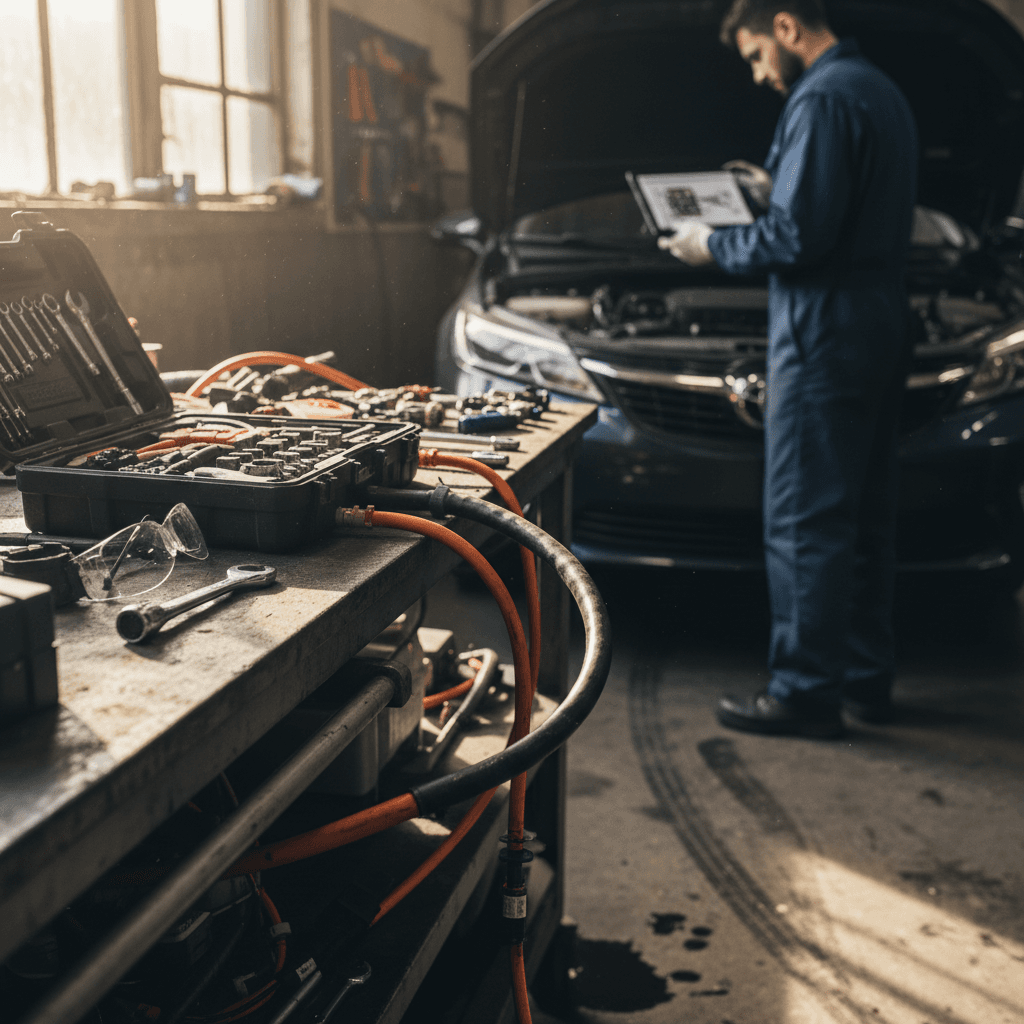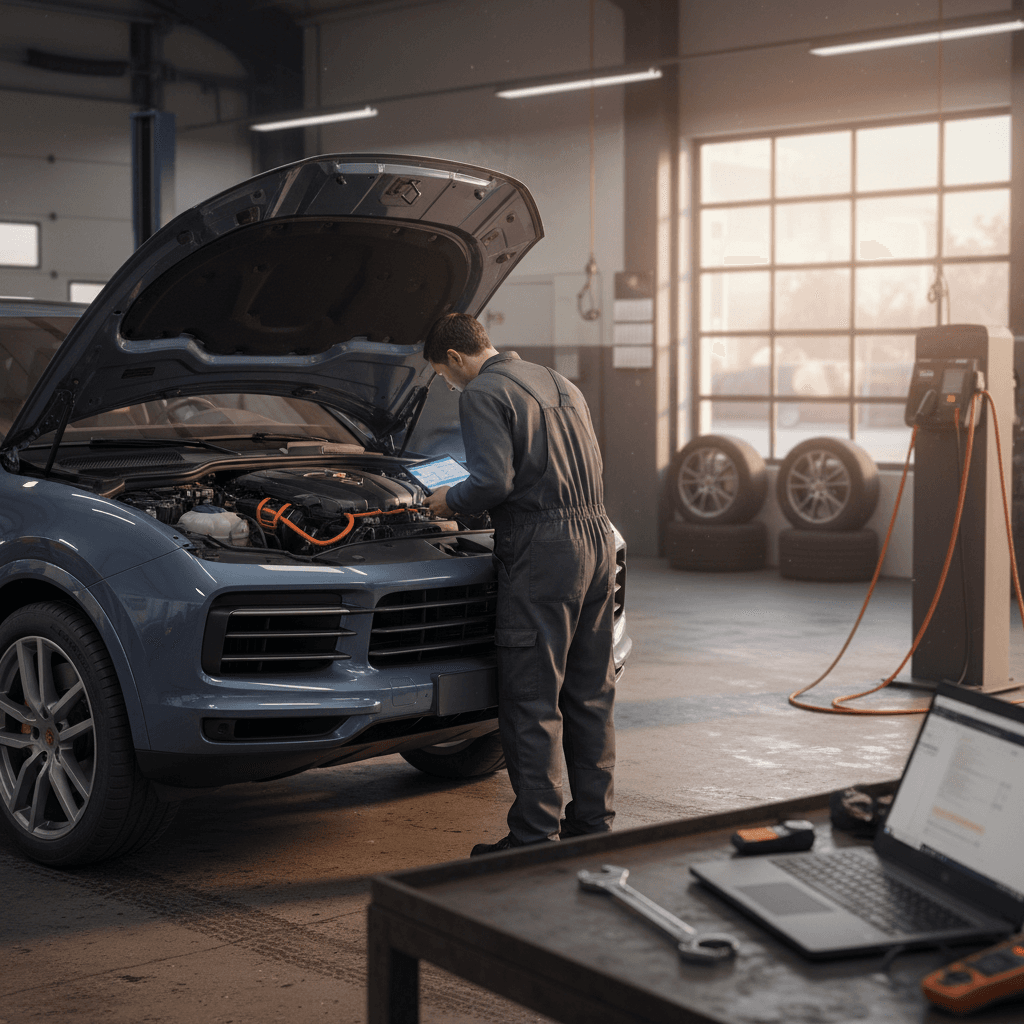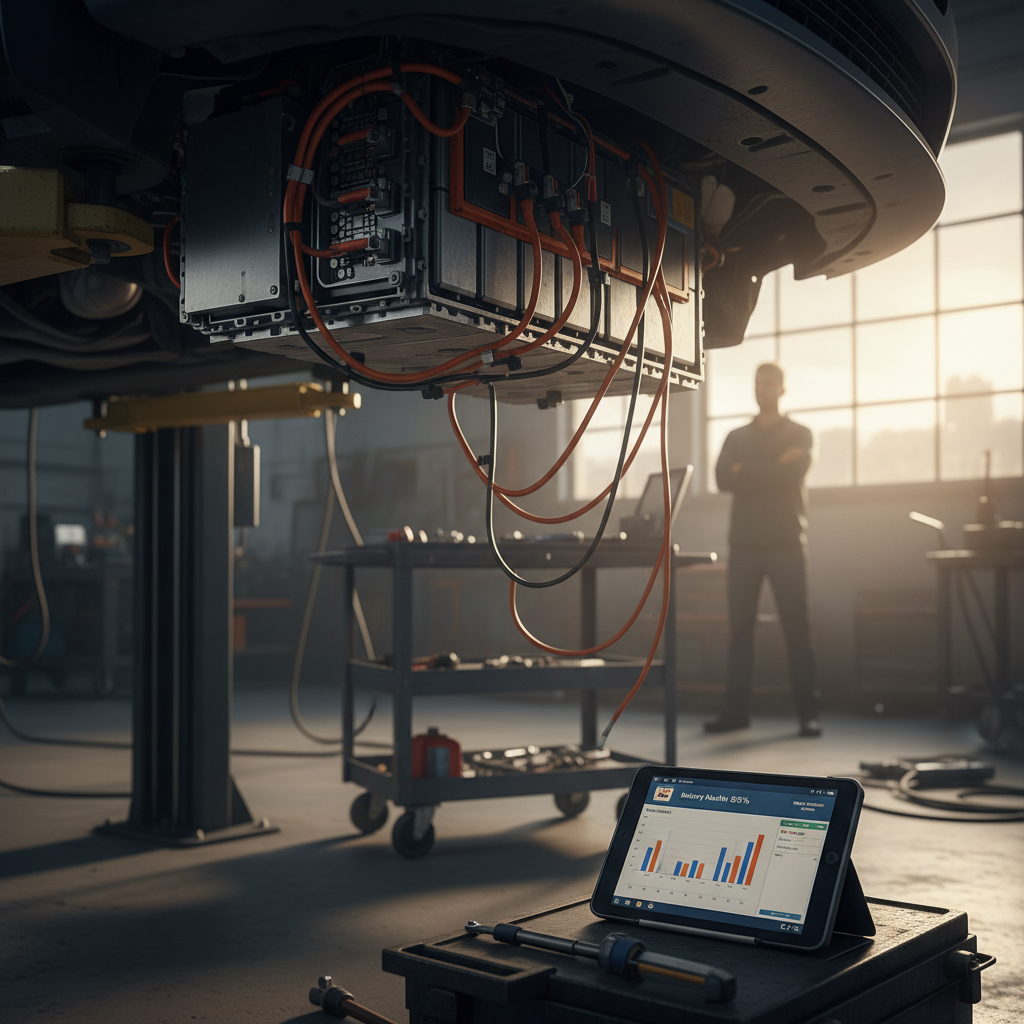If you’re Googling “hybrid car repairs near me”, you’re probably trying to solve a problem quickly without overpaying or becoming someone’s learning experiment. Hybrids can be cheaper to maintain than gas cars, but when something hybrid‑specific fails, like the high‑voltage battery or inverter, the stakes and repair bills go up fast. This guide walks you through what goes wrong, what it costs in 2025, and how to find a qualified shop near you.
Why hybrid repairs are a special case
Why “hybrid car repairs near me” feels different than a normal shop search
With a conventional gas car, almost any neighborhood shop can handle 90% of what goes wrong. With hybrids, the picture is different: routine items like brakes and suspension are straightforward, but high‑voltage systems, inverters, and electric drive components are still unfamiliar to many independent shops. A 2024 industry survey found that less than half of independent shops felt fully prepared to service electrified vehicles, and coverage is even thinner in rural areas.
What makes hybrid repairs unique?
Same basic car, extra systems stacked on top
High‑voltage safety
Complex electronics
Mixed skill sets
Don’t be someone’s training case
What hybrid cars actually need repaired (and what’s just maintenance)
First, it helps to separate normal wear‑and‑tear from truly hybrid‑specific repairs. One reason hybrids are popular is that they often need fewer traditional services: the engine runs less, regenerative braking saves pads and rotors, and transmissions are often simpler eCVT units. But when the hybrid side does act up, the bills are higher.
- Tires, alignment and suspension components (control arms, bushings, shocks/struts)
- 12‑volt battery, wiper blades, cabin filters and fluids
- Brake pads and rotors (usually replaced less often thanks to regenerative braking)
- Engine‑side items: spark plugs, air filters, engine coolant, belts
- HVAC issues, door locks, window regulators and other body electronics
Hybrid‑specific repairs
- High‑voltage battery pack faults or replacement
- Inverter or DC‑DC converter failures
- Electric motor or e‑Axle / transaxle issues
- Hybrid cooling system leaks or pump failures
- Battery fan and airflow duct problems (especially in hatchbacks)
Repairs any good shop can handle
- Suspension, steering and wheel bearings
- Most brake work (pads, rotors, fluid)
- Exhaust, engine oil leaks, gaskets and sensors
- AC recharges and most mechanical HVAC issues
- Basic electrical diagnostics on low‑voltage systems

A quick ownership win
Typical hybrid repair costs in 2025
In 2025, day‑to‑day hybrid maintenance tends to be cheaper than for comparable gas cars, but specialty hybrid repairs are more expensive. Many owners spend around $700–$1,000 per year on regular maintenance, while big‑ticket repairs, especially high‑voltage battery work, can run into the thousands when they fall outside warranty.
Hybrid cost snapshot for 2025 (U.S.)
Common hybrid repairs and what they cost
Actual prices vary by brand, region and whether you use a dealer, independent shop or refurbished parts, but these ranges will give you ballpark expectations in 2025.
| Repair | Typical Cost Range (Parts + Labor) | Notes |
|---|---|---|
| Hybrid battery replacement | $1,500 – $4,500 | Smaller or older packs can be cheaper; SUVs and plug‑in hybrids tend to cost more. |
| Refurbished hybrid battery | $1,200 – $2,500 | Lower up‑front cost but usually shorter warranty and life expectancy than new packs. |
| Inverter or DC‑DC converter | $3,000 – $6,000 | One of the most expensive electronic failures; sometimes available used/remanufactured. |
| Hybrid transaxle / e‑Axle | $3,500 – $7,000 | Complex units that blend engine and motor power; labor‑intensive to replace. |
| Electric coolant pump (hybrid system) | $600 – $1,200 | Common wear item on some Toyota/Lexus and Ford hybrids. |
| Battery cooling fan / duct service | $400 – $900 | Often caused by dust, pet hair or blocked vents in the cabin or cargo area. |
| High‑voltage wiring / contactors | $800 – $2,500 | Usually tied to corrosion, accidents or moisture intrusion. |
Use this table as a starting point, always get a written estimate for your specific vehicle and VIN.
High‑voltage is a safety issue, not just a cost issue
How to find a quality hybrid repair shop near you
When you type “hybrid car repairs near me” into a search bar, you’ll see a mix of franchised dealers, big national chains, and small independents. The right answer for you depends on your vehicle’s age, mileage, warranty status, and how complex the issue appears to be.
Where to look for hybrid repair near you
Match the job to the shop’s strengths
Franchised dealership
Independent hybrid specialist
General repair chain
Step‑by‑step: finding a hybrid repair shop near you
1. Start with hybrid‑focused search terms
Search phrases like <strong>“Prius hybrid repair near me”</strong> or <strong>“Honda hybrid specialist”</strong> rather than just “mechanic.” Scan for shops that explicitly mention hybrid or EV service on their homepage, not just buried in a long list.
2. Look for training and certifications
On the shop’s site or lobby wall, look for OEM training (Toyota, Honda, Ford, etc.), ASE L3 (hybrid/EV) credentials, or third‑party high‑voltage training. Certification doesn’t guarantee perfection, but lack of it is a red flag.
3. Read recent, hybrid‑specific reviews
Use filters to see reviews from the last 6–12 months that mention your specific model (e.g., Camry Hybrid, RAV4 Hybrid). You want proof they handle hybrids regularly, not just once, years ago.
4. Call and ask how often they work on hybrids
A quick phone screen can tell you a lot. Ask how many hybrids they see in a typical week, whether they own factory scan tools, and if they’ve done the repair you think you need.
5. Compare estimates, not just hourly rates
Request written estimates from 2–3 shops, including parts brand (OEM vs aftermarket vs refurbished) and warranty. A slightly higher hourly rate can still be cheaper overall if the shop diagnoses correctly the first time.
6. Prioritize clear communication
You want a service advisor who can explain hybrid diagnostics and repair options in plain language, send photos or videos, and get your approval before moving ahead. Confusion now usually means frustration later.
Questions to ask any hybrid mechanic before you book
You don’t need to be an engineer to interview a shop effectively. A few pointed questions will quickly separate true hybrid specialists from generalists who are “willing to give it a shot.”
- How many hybrids do you typically service each week, and which brands?
- Do your technicians hold any hybrid/EV‑specific certifications (like ASE L3)?
- What scan tools and OEM software do you use for my brand?
- Have you done this specific repair, battery, inverter, transaxle, on my model before?
- What kind of warranty do you offer on parts and labor for hybrid components?
- Do you use new OEM parts, remanufactured, or refurbished components, and can I choose?
- Will you provide a detailed diagnostic report and keep old parts for me to inspect?
Good answers sound like this
How to avoid the most expensive hybrid repairs
Hybrid batteries and inverters are expensive, but you have more control over whether you ever pay those big bills than you might think. A combination of basic maintenance, smart driving and early diagnostics can dramatically lower your odds of a wallet‑busting failure.
Five habits that protect your hybrid’s expensive parts
Cheap routines that save you thousands later
Keep battery vents clear
Avoid extreme heat when possible
Address warning lights early
Don’t skip engine maintenance
Drive smoothly
Get an annual hybrid health check
Consider a service contract carefully
When a used EV might make more sense than more hybrid repairs
If your hybrid is paid off and reliable, keeping it is usually the cheapest option. But if you’re staring at a $4,000+ battery or inverter quote on a 10‑ to 15‑year‑old car, it’s worth asking whether that money would be better used as a down payment on something newer, especially as the used EV market matures.
When fixing the hybrid makes sense
- The car is otherwise solid: no rust, no major engine or transmission issues.
- The repair restores several years of usable life (for example, a fresh battery on a low‑mileage car).
- You drive enough miles that the fuel savings matter, but not so many that you’ll run through another pack soon.
- You can source a reasonably priced new or refurbished battery from a reputable supplier.
When to consider a used EV instead
- The hybrid needs multiple big repairs (battery plus engine or transaxle issues).
- You mostly do city or suburban driving where an EV’s range works well.
- You have or can install home charging, or you have reliable workplace charging.
- You’d like to reduce long‑term maintenance complexity by eliminating the gas engine entirely.
Where Recharged fits in
You can also get a digital trade‑in or instant offer, explore EV‑friendly financing options, and arrange nationwide delivery, all online. For shoppers who prefer an in‑person experience, Recharged operates an Experience Center in Richmond, VA, where EV specialists can walk you through options side by side.
Hybrid repair FAQ
Frequently asked questions about hybrid car repairs near you
Key takeaways before you book hybrid car repairs near you
Searching for “hybrid car repairs near me” is a signal that you’re balancing time, money and uncertainty. The good news is that you have more control than it feels like in the moment. Choose shops that see hybrids every week, ask pointed questions about experience and warranties, and handle warning lights early instead of hoping they go away. If a repair estimate starts to look more like a down payment, take a breath and compare it against alternatives, whether that’s a refurbished part, a second opinion from a hybrid specialist, or a transition into a used EV with a verified battery health report. The most expensive hybrid repair is usually the one you rush into without enough information.

